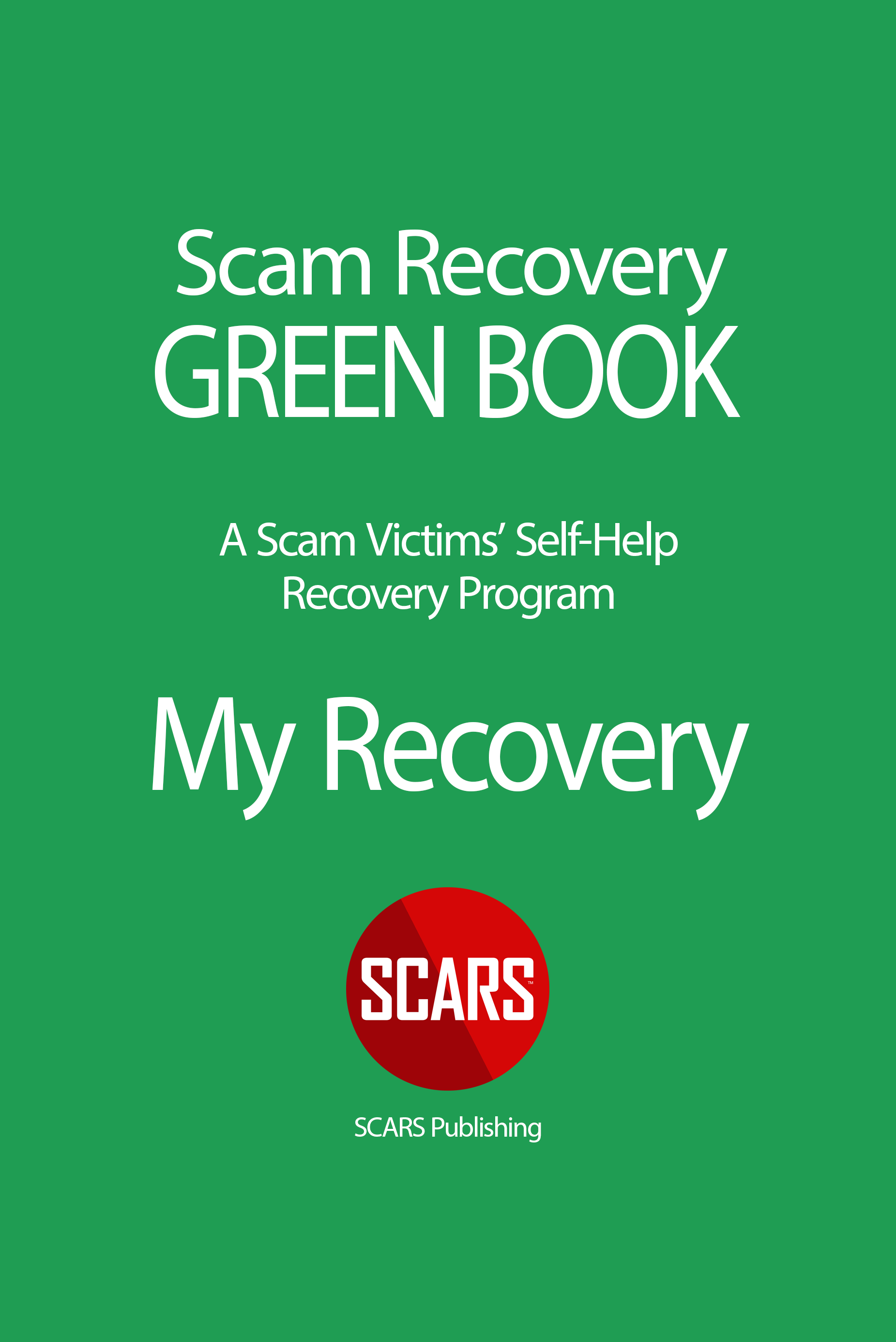
SCARS Institute’s Encyclopedia of Scams™ Published Continuously for 25 Years


Scam Alert: SEO Poisoning & Typosquatting Scams
Scammers Try to Lure You Into Their Fake Websites through Social Engineering in Search Results!
How Scams Work – A SCARS Insight
Author:
• SCARS Editorial Team – Society of Citizens Against Relationship Scams Inc.
Article Abstract
SEO poisoning and typosquatting are tactics used by scammers to manipulate search engine results, making their malicious websites appear legitimate to unsuspecting users.
Exploiting human trust in top search results, cybercriminals work hard to trick individuals into visiting their fraudulent sites, leading to potential credential theft, malware infections, and financial losses.
Typosquatting involves registering domain names similar to legitimate ones, often with slight misspellings, while SEO poisoning methods like keyword stuffing, content spamming, and link farming aim to boost malicious site visibility.
These deceptive practices prey on user errors and the tendency to trust high-ranking search results. To protect against these threats, users should employ anti-malware plugins, use DNS defense tools like Quad 9, and double-check URLs before clicking. Staying vigilant and verifying website authenticity can help mitigate the risk of falling victim to SEO poisoning scams.

SEO Poisoning and Typo Squatting Allow Scammers to Hijack Search Listing Prominence from Legitimate Websites to Lure in Victims for any number of Scams, from Online Shopping Scams, Travel Scams, Financial Fraud and Scams, Government Impersonation, and many more!
In the online age, where the internet serves as a vast repository of information, we depend on search engines to help us find almost everything. The practice of Search Engine Optimization (SEO) is critical for websites to enhance their visibility and attract more visitors through helping them get better positions in search engine listings. However, amidst the legitimate efforts to improve search rankings lies two deceptive techniques known as SEO poisoning and Typo Squatting, employed by threat actors to deceive users and propagate malicious activities.
SEO Poisoning
SEO poisoning is a smart strategy used by scammers and cybercriminals to manipulate search engine results and elevate the visibility of their malicious websites.
By exploiting the human tendency to trust the top search results, these malevolent actors aim to make their fraudulent sites appear more legitimate and credible to unsuspecting users. The technique preys on individuals who often fail to scrutinize their search results closely, leading to potentially serious consequences such as credential theft, malware infections, and financial losses.
At its core, SEO poisoning capitalizes on the psychology of trust and convenience – in other words, it is Social Engineering
When users conduct online searches, they typically gravitate toward the top-ranked results, assuming them to be the most reliable and relevant sources of information. Cybercriminals exploit this inherent cognitive bias by employing various tactics to manipulate search algorithms and ensure that their malicious websites rank prominently among the search results. As a result, unsuspecting users may inadvertently click on these compromised links, unknowingly exposing themselves to cybersecurity risks.
It is important for you to understand that criminals have vast amounts of money and technical talent to do this. They can easily hijack the traffic from small and medium businesses, even governments for their purposes.
Typo Squatting (Typosquatting)
One of the primary methods used in SEO poisoning is typosquatting, a deceptive practice wherein cybercriminals register domain names that closely resemble legitimate ones. These fraudulent domains often contain slight variations or misspellings of popular websites, making them indistinguishable to unsuspecting users. For instance, a user intending to visit a well-known website may inadvertently type a typo in the URL or click on a link with a subtly altered domain name, leading them to a malicious site instead. Once users land on these counterfeit websites, they may fall victim to various cyber threats, including phishing attacks, malware downloads, and financial scams.
Other SEO Poisoning Methods
SEO poisoning methods allow cybercriminals to manipulate search engine results and increase the visibility of their malicious websites.
Here are some common techniques they use:
- Keyword Stuffing: Cybercriminals stuff their websites with popular search terms and keywords related to trending topics or commonly searched topics. This increases the likelihood of their site appearing at the top of search results for those keywords.
- Content Spamming: They create numerous pages filled with irrelevant or low-quality content but optimized with popular keywords. These pages are designed to attract search engine traffic but offer little to no value to users.
- Link Farming: Cybercriminals create networks of websites or web pages that link to each other and to their main malicious site. This manipulates search engine algorithms into thinking the site is popular and reputable, leading to higher rankings in search results.
- Typosquatting: Also known as URL hijacking, this method involves registering domain names that are slight misspellings or variations of popular websites. When users make typing errors in the URL, they may be directed to the malicious site instead of the intended destination. This is especially common around banking website domains.
- Top Level Domains: This is a common approach when impersonating government agencies. For example, instead of FBI.gov, the criminals register FBI.com Normally government agencies are careful about this, but new agencies or campaigns may leave many opportunities for the criminals.
- Doorway Pages: These are low-quality web pages optimized for specific keywords and designed to redirect visitors to the cybercriminal’s main site. They are often hidden from users but accessible to search engine crawlers, tricking search engines into ranking the site higher.
- Hacked Websites: Cybercriminals may exploit vulnerabilities in legitimate websites to inject malicious code or links. When users search for related keywords, these compromised sites may appear in search results and lead users to malware-infected pages.
- Black Hat SEO Techniques: This includes various unethical tactics such as cloaking (presenting different content to search engines and users), hidden text (using text colors similar to the background to hide keywords), and link spamming (creating artificial backlinks to manipulate search rankings).
These methods aim to deceive search engines and users into believing that the malicious sites are legitimate and relevant to their search queries. By exploiting weaknesses in search engine algorithms and user behavior, cybercriminals can increase the visibility of their malicious content and target unsuspecting users for scams, malware infections, and other malicious activities.
In light of the pervasive threat posed by SEO poisoning, users must exercise constant vigilance and skepticism when browsing the internet.
SCARS Recommends These Precautions
- Use an Anti-Malware plugin in your browser. SCARS uses Malwarebytes, but there are several good ones. These help block malicious websites from opening in your browser
- Quad 9 is a DNS defense tool that prevents access to reported malicious domains.
- Double-checking URLs before clicking on links and verifying the authenticity of websites, can help mitigate the risk of falling victim to malicious schemes.
- Never type in a URL / web address from memory. Bookmark (save) the addresses you use frequently in your browser, or search Google for the official websites of banks, financial institutions, and government
More Scam Alerts:
- Online Safety – Change Your Device’s DNS Settings – 2024 (romancescamsnow.com)
- Malwarebytes.com
- Scam Alert: Toll-Road Money Due Scam – U.S./Canada – 2024 (romancescamsnow.com)
- Scam Alert: AI Voice Cloning Scams – 2024 (romancescamsnow.com)
- Scam Victim Alert: Scam Social Media Comments (romancescamsnow.com)
- Phishing Alert: PayPal Invoice Scam (romancescamsnow.com)
- New Crypto Payment Scam – A SCARS Alert (romancescamsnow.com)
- Spam and Phishing – Identity Theft, Fraud And Cybercrime Alert (romancescamsnow.com)
-/ 30 /-
What do you think about this?
Please share your thoughts in a comment below!
Table of Contents
LEAVE A COMMENT?
Recent Comments
On Other Articles
- Arwyn Lautenschlager on Love Bombing And How Romance Scam Victims Are Forced To Feel: “I was love bombed to the point that I would do just about anything for the scammer(s). I was told…” Feb 11, 14:24
- on Dani Daniels (Kira Lee Orsag): Another Scammer’s Favorite: “You provide a valuable service! I wish more people knew about it!” Feb 10, 15:05
- on Danielle Delaunay/Danielle Genevieve – Stolen Identity/Stolen Photos – Impersonation Victim UPDATED 2024: “We highly recommend that you simply turn away form the scam and scammers, and focus on the development of a…” Feb 4, 19:47
- on The Art Of Deception: The Fundamental Principals Of Successful Deceptions – 2024: “I experienced many of the deceptive tactics that romance scammers use. I was told various stories of hardship and why…” Feb 4, 15:27
- on Danielle Delaunay/Danielle Genevieve – Stolen Identity/Stolen Photos – Impersonation Victim UPDATED 2024: “Yes, I’m in that exact situation also. “Danielle” has seriously scammed me for 3 years now. “She” (he) doesn’t know…” Feb 4, 14:58
- on An Essay on Justice and Money Recovery – 2026: “you are so right I accidentally clicked on online justice I signed an agreement for 12k upfront but cd only…” Feb 3, 08:16
- on The SCARS Institute Top 50 Celebrity Impersonation Scams – 2025: “Quora has had visits from scammers pretending to be Keanu Reeves and Paul McCartney in 2025 and 2026.” Jan 27, 17:45
- on Scam Victims Should Limit Their Exposure To Scam News & Scammer Photos: “I used to look at scammers photos all the time; however, I don’t feel the need to do it anymore.…” Jan 26, 23:19
- on After A Scam, No One Can Tell You How You Will React: “This article was very informative, my scams happened 5 years ago; however, l do remember several of those emotions and/or…” Jan 23, 17:17
- on Situational Awareness and How Trauma Makes Scam Victims Less Safe – 2024: “I need to be more observant and I am practicing situational awareness. I’m saving this article to remind me of…” Jan 21, 22:55
ARTICLE META
Important Information for New Scam Victims
- Please visit www.ScamVictimsSupport.org – a SCARS Website for New Scam Victims & Sextortion Victims
- Enroll in FREE SCARS Scam Survivor’s School now at www.SCARSeducation.org
- Please visit www.ScamPsychology.org – to more fully understand the psychological concepts involved in scams and scam victim recovery
If you are looking for local trauma counselors please visit counseling.AgainstScams.org or join SCARS for our counseling/therapy benefit: membership.AgainstScams.org
If you need to speak with someone now, you can dial 988 or find phone numbers for crisis hotlines all around the world here: www.opencounseling.com/suicide-hotlines
A Note About Labeling!
We often use the term ‘scam victim’ in our articles, but this is a convenience to help those searching for information in search engines like Google. It is just a convenience and has no deeper meaning. If you have come through such an experience, YOU are a Survivor! It was not your fault. You are not alone! Axios!
A Question of Trust
At the SCARS Institute, we invite you to do your own research on the topics we speak about and publish, Our team investigates the subject being discussed, especially when it comes to understanding the scam victims-survivors experience. You can do Google searches but in many cases, you will have to wade through scientific papers and studies. However, remember that biases and perspectives matter and influence the outcome. Regardless, we encourage you to explore these topics as thoroughly as you can for your own awareness.
Statement About Victim Blaming
SCARS Institute articles examine different aspects of the scam victim experience, as well as those who may have been secondary victims. This work focuses on understanding victimization through the science of victimology, including common psychological and behavioral responses. The purpose is to help victims and survivors understand why these crimes occurred, reduce shame and self-blame, strengthen recovery programs and victim opportunities, and lower the risk of future victimization.
At times, these discussions may sound uncomfortable, overwhelming, or may be mistaken for blame. They are not. Scam victims are never blamed. Our goal is to explain the mechanisms of deception and the human responses that scammers exploit, and the processes that occur after the scam ends, so victims can better understand what happened to them and why it felt convincing at the time, and what the path looks like going forward.
Articles that address the psychology, neurology, physiology, and other characteristics of scams and the victim experience recognize that all people share cognitive and emotional traits that can be manipulated under the right conditions. These characteristics are not flaws. They are normal human functions that criminals deliberately exploit. Victims typically have little awareness of these mechanisms while a scam is unfolding and a very limited ability to control them. Awareness often comes only after the harm has occurred.
By explaining these processes, these articles help victims make sense of their experiences, understand common post-scam reactions, and identify ways to protect themselves moving forward. This knowledge supports recovery by replacing confusion and self-blame with clarity, context, and self-compassion.
Additional educational material on these topics is available at ScamPsychology.org – ScamsNOW.com and other SCARS Institute websites.
Psychology Disclaimer:
All articles about psychology and the human brain on this website are for information & education only
The information provided in this article is intended for educational and self-help purposes only and should not be construed as a substitute for professional therapy or counseling.
While any self-help techniques outlined herein may be beneficial for scam victims seeking to recover from their experience and move towards recovery, it is important to consult with a qualified mental health professional before initiating any course of action. Each individual’s experience and needs are unique, and what works for one person may not be suitable for another.
Additionally, any approach may not be appropriate for individuals with certain pre-existing mental health conditions or trauma histories. It is advisable to seek guidance from a licensed therapist or counselor who can provide personalized support, guidance, and treatment tailored to your specific needs.
If you are experiencing significant distress or emotional difficulties related to a scam or other traumatic event, please consult your doctor or mental health provider for appropriate care and support.
Also read our SCARS Institute Statement about Professional Care for Scam Victims – click here to go to our ScamsNOW.com website.


















Thank you for your comment. You may receive an email to follow up. We never share your data with marketers.